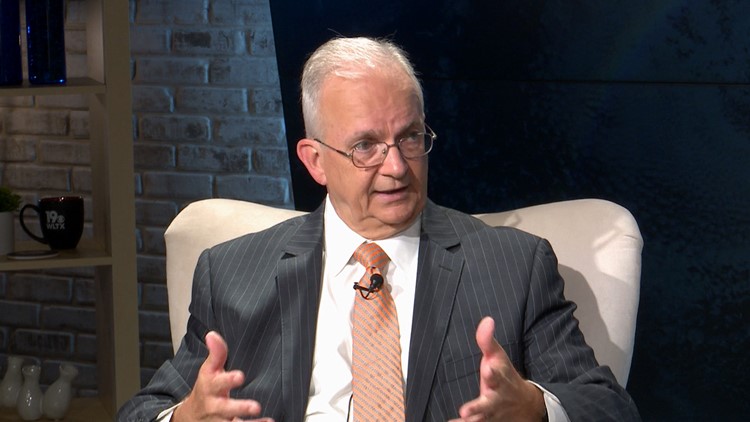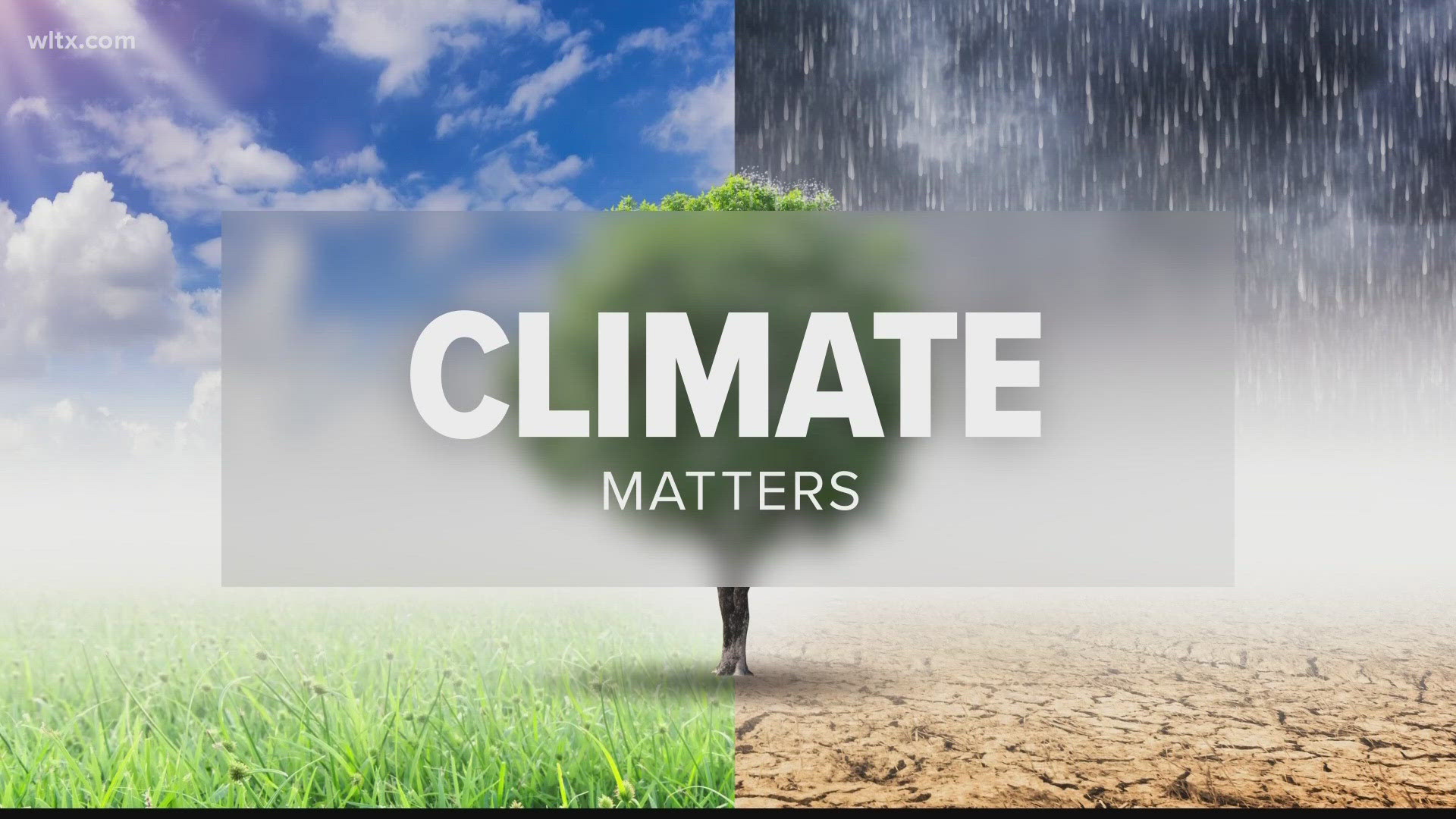COLUMBIA, S.C. — Former News19 Chief Meteorologist Jim Gandy has authored a new paper that highlights the important work in educating the public about the threat of climate change.
Gandy, Ed Maibach, Heidi Cullen, Bernadette Plackey, and Joe Witte all contributed to the paper that appears in Nature Climate Change, one of the most prestigious science journals on climate in the world.
Midlands viewers know Gandy from his long career as a forecaster, where he served as WLTX's Chief Meteorologist for nearly 20 years from 1999 until his retirement in 2019.
The paper coincides with the 10th anniversary of the "Climate Matters" program being rolled out nationally. That effort was created to improve the public's understanding about climate change through their local TV weathercasters. Gandy, partnering with Climate Central and George Mason University, started the program at WLTX and created regular segments on the impacts of global warming both across the world and locally. The paper highlights the process of creating climate matters.
"This had never been attempted before," Gandy told News19's J.R. Berry in an interview about the paper's publication. "So we didn't have much guidance on how to do this."
The program--originally supposed to be a one-year pilot--was a success, and was rolled out to other stations. Back in 2010, there wasn't much on TV about climate change, but since the program began, there's been a 100 fold increase in stories in local news broadcasts. Presently, about half of all broadcast meteorologists used Climate Matters material in their broadcasts.
Gandy said the time to get the word out about climate change is now.
"What we're seeing right now are some of the ramifications of that warming," Gandy said. "The heat waves. The flooding that takes place in some parts. The drought in California. It's not being caused by climate change but it is being enhanced by climate change. It would not have been this dry had it not been for what climate change is doing to the temperature of the planet."
Gandy said carbon dioxide levels are 50 percent higher now than they were before the start of the Industrial Revolution.
"We're seeing some of the ice caps melting at a faster rate than we were anticipating," Gandy said. "Sea level rise is increasing at a faster pace. And we know from just the historical record that the amount of warming that has already taken place means that the sea level is going to be rising for the next several centuries."
Gandy said it's not just the heat that's increasing; the humidity is up as well, due to extra moisture in the air. That pushes the heat index higher.
Reducing emissions will be the key to slowing and ultimately reversing these trends.
"It's going to take a collective effort," Gandy said. "We have to make a shift in the way we produce energy on the plant. We have to get away from burning fossil fuels to something that's more renewable. It's happening--it's just not happening fast enough."
Gandy said people and governments can do things such as embrace solar technology, convert to LED lights, replace old air conditioners with more energy efficient ones, and remember to not run your A/C below 75 degrees.
And he says large companies need to get onboard, which some, like Walmart and Amazon, are already doing.
"It's cost efficient," Gandy said. "What company does not want to save money? and if you can save money by reducing your energy costs, then that's great for the company, that's great for the environment, that's great for shareholders."



